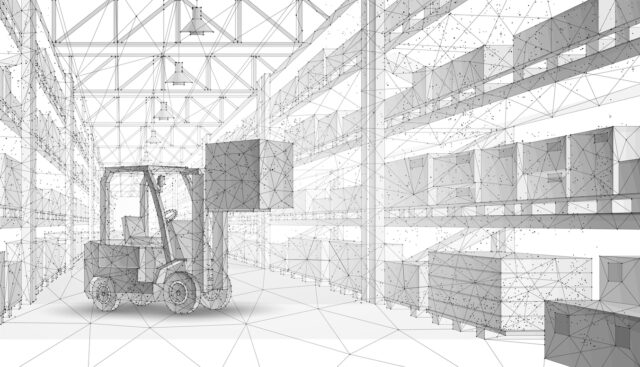The pressures mounting on large, complex global supply chains are immense. From geopolitical conflicts and economic downturn to the intensification of the climate crisis, disruptions are not only becoming more severe, but more common.
Increasingly, supply chain operators appear to be on the back foot.
Manufacturers with complex global supply chains should expect a months-long disruption at least once every 3.7 years, due to “more profound shocks such as financial crises, terrorism, extreme weather, and, yes, pandemics,” McKinsey analysts find.
At the same time, problems securing labour, a global chip shortage, and the rising complexity of the supply chain management process are conspiring to hamper executives’ efforts to meet these challenges. Furthermore, increasing levels of globalisation are creating challenges in monitoring supply networks in real time, obtaining delivery data, and generating actionable insights.
AI and machine learning to cut through the noise
Digital tools look more and more like the solution to supply chain operator’s increasingly reactive approach to an increasingly hostile landscape.
Artificial intelligence (AI) and machine learning have the ability to analyse, organise, and generate insights from complex data sets. These capabilities make the technology especially appealing to supply chain operators. As a result, a recent IBM report found that 46% of supply
chain executives anticipate AI cloud applications will be “their greatest areas of investment in digital operations over the next three years.”
Bob Stoffel, former Senior Vice President, Engineering, Strategy and Supply Chain at UPS, said, “When we talk about supply chain visibility, it does not simply mean visibility into your own supply chain. It means visibility among partners, which enables collaborative decision making closer to the customer.”
This deeper and broader visibility is key to making more effective decisions within the supply chain. Some analysts believe that AI and machine learning will be key to enabling supply chains to transition from a reactive approach to a proactive one.
The AI-powered proactive supply chain
Adopting a proactive approach to supply chain management requires the ability to anticipate and mitigate disruptions, delays, and bottlenecks before they impact the organisation.
AI applications like predictive modelling and real-time monitoring, can help companies optimise their supply chains and gain valuable insights into their own operation, as well as those in their supplier ecosystem and the market at large. This visibility is critical to the task of identifying potential risks or opportunities ahead of time.
By shifting from a reactive stance to a more proactive outlook, organisations can implement more strategic measures to optimise business processes, enhance efficiency, and improve the overall resilience of supply chains.
Proactive supply chains not only ensure uninterrupted operations but also empower organisations to anticipate market fluctuations, customer demands, and emerging market trends. As a result, they are significantly better positioned with regard to their competition and ability to meet customer demands.
- AI in Supply Chain
- Digital Supply Chain











